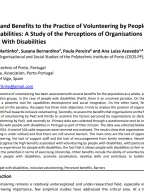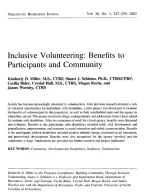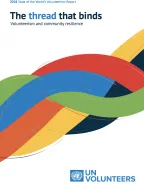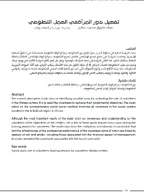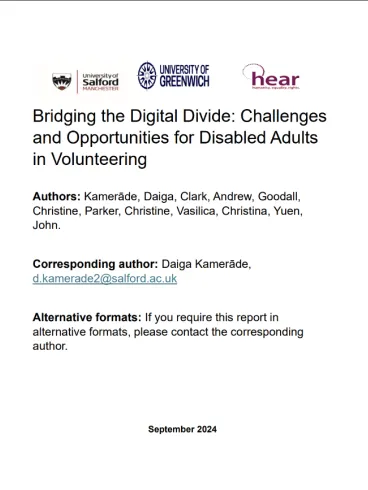
Fast read
This report aims to advance the understanding of how digital inclusion of persons with disabilities fosters social inclusion in online and offline voluntary work. It identifies principles to increase participation, inclusivity, and leverage the potential of digital technologies in volunteer-involving organizations.
Synthesis
The report includes the following findings:
- Higher interest in online volunteering: Disabled adults show more interest in online volunteering, as these roles offer more flexibility and accessibility. However, there are still barriers. For example, 1.4 million disabled people are not using the internet.
- Internet access boosts volunteering: For disabled adults, regular internet access increases the likelihood of volunteering, both online and in-person. More frequent internet users tend to volunteer more hours, though daily or weekly users often volunteer fewer hours. This is the case regardless of someone’s socioeconomic background.
- Assumptions about digital skills: Many organizations assume volunteers have the digital skills they need. This can leave some disabled people without the support or training they require.
- Importance of personal support: Assistive technology works best with informal support networks. Ongoing, one-to-one help is essential, as many disabled volunteers hesitate to ask for help when initial support is lacking.
- Employment helps overcome digital barriers: The report finds that paid work, rather than volunteering, often gives disabled people the skills, confidence, and resources to overcome digital barriers.
- The report calls for inclusive digital environments that support disabled people in volunteering. It provides guidelines to help organizations reduce digital barriers at each stage of the volunteering process.













